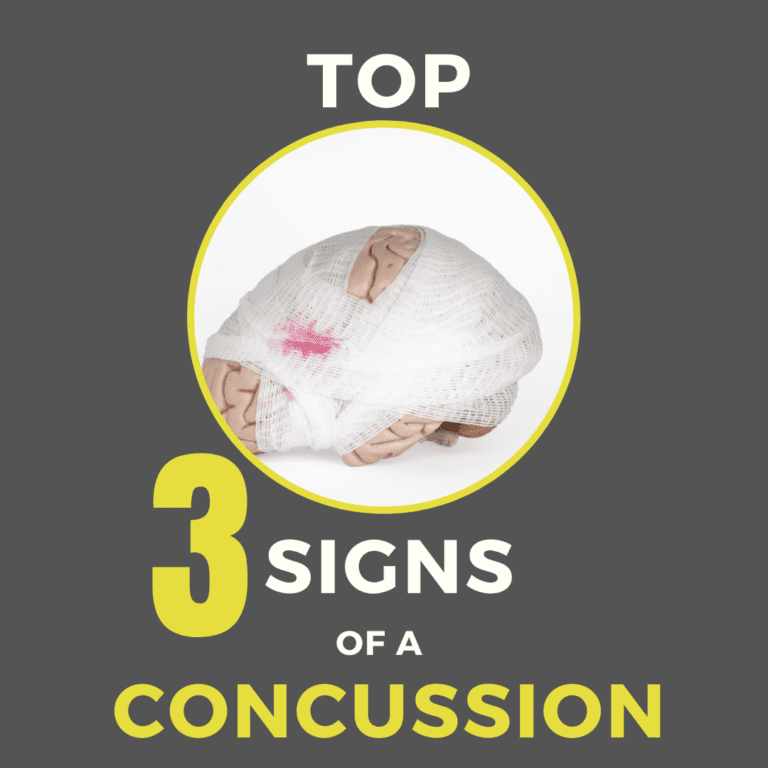According to the Centers for Disease Control and Prevention (CDC), approximately 2.87 million Americans are affected by a concussion every year. This accounts for approximately 2.53 million emergency room visits, 288,000 hospitalizations, and 56,800 deaths. Although these numbers were obtained by a 2014 study, they provide a glimpse at the prevalence of concussion among Americans.
A concussion, also known as a mild traumatic brain injury (TBI), occurs when there is a sudden and direct force applied to the head. This can be through an impact or through a jerking motion that causes the brain to shake back and forth, hitting the inside of the skull. Although most concussions are not considered to be life threatening, they still require immediate attention.
Since concussions require immediate attention, it is important to know the signs of a concussion. If someone has undergone an impact to the head or whiplash type of injury, then you will want to look for potential signs of a concussion. While symptoms can vary from person to person, these are some common signs of a concussion to look for:
Headache
A headache is by far the most common sign of a concussion. In fact, the Director of the Sports Neurology and Concussion Program at UT Southwestern Medical Center notes that as many as 95% of individuals with a concussion will experience a headache after their injury. While the type of headache many vary, headaches associated with concussions are generally described as tension headaches or pressure in the head. Some people also describe the sensation as their head feels like it’s blowing up like a balloon.
Nausea
After a traumatic brain injury, nausea can occur as a migraine symptom or as an independent symptom. Vomiting right after the injury can indicate a serious neurological injury or it can be related to Vestibular dysfunction. However, if the nausea persists, then it is commonly believed to be an unfortunate side effect of the migraine.
Cognitive & Physical Impairment
A concussion makes it difficult for one to process thoughts, concentrate, focus, and learn new information. In some cases, a concussion can also cause memory loss, slurred speech, and a general sense of confusion.
In addition to cognitive impairment, a concussion may also cause some physical impairment. Some examples include: problems walking, dizziness, balance issues, and abnormal eye movement.
It is important to note that these symptoms may occur immediately after the injury or they may develop over time. Also, a concussion can also occur without the presence of all these symptoms. While some concussions have obvious signs, others may be harder to notice at first. For this reason, any force to the head followed by any of these symptoms should be evaluated by a medical doctor or neurologist to prevent future problems.
When being evaluated by a medical doctor or neurologist for a concussion, they will ask questions about the incident and perform a physical examination to determine what symptoms are present. Part of this physical exam consists of them using a light to observe pupil changes, test for light sensitivity, and to observe eye movements. In some cases, an MRI or CT scan of the brain may be required to obtain more information.
Overall, concussions are mild brain injuries that require immediate attention. While headaches, nausea, and physical and cognitive impairment are the top three signs of a concussion, these symptoms do not exclusively guarantee the presence or absence of a concussion. For this reason if a concussion is suspected, an examination by a medical doctor or neurologist should be performed.

Dr. Kashouty, a diplomate of the American Board of Psychiatry and Neurology (ABPN), practices general neurology with fellowship trained specialization in clinical neurophysiology. Dr. Kashouty finds the form and function of the nerves and muscles the most interesting part of neurology, which is what led him to specialize in neurophysiology with more emphasis on neuromuscular conditions. He treats all neurological diseases, but his main focus is to treat and manage headaches, movement disorders and neuromuscular diseases.




